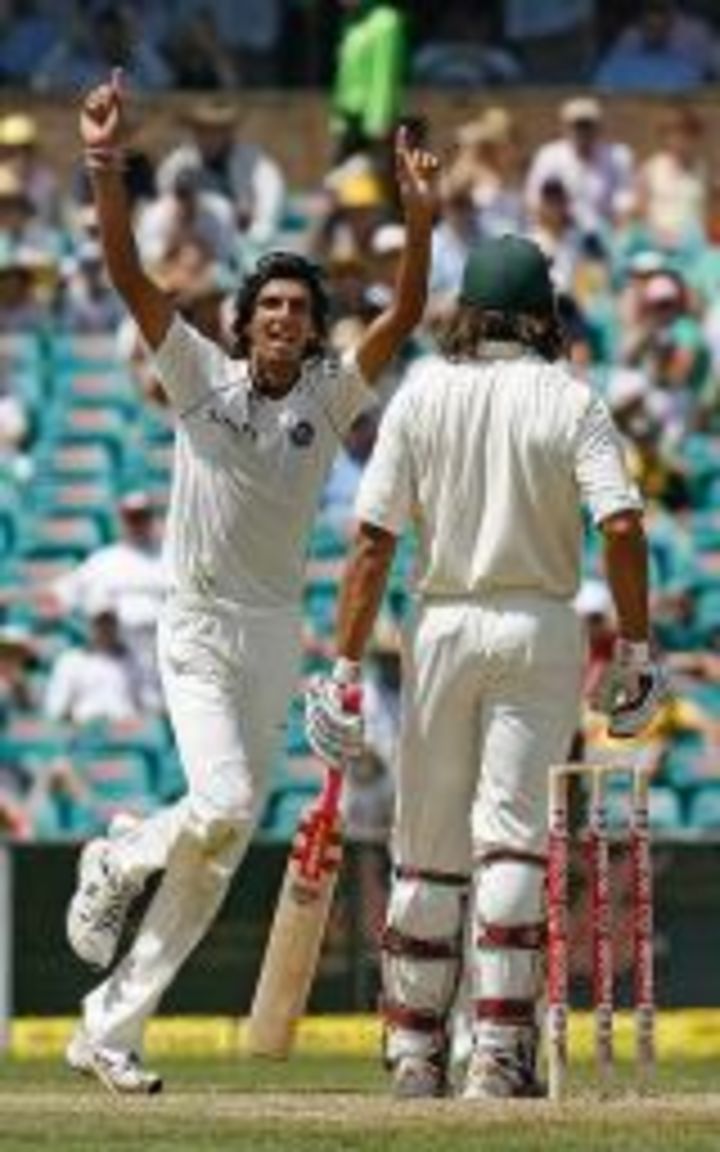Stop walking
Walking was an admirable trait in the gentleman’s game but it is no longer that

One of the great ironies of last season was one of Cricket Australia’s biggest sponsors, a famous Scotch whiskey brand, continuing to remind us to “Keep walking”. At a time when the Andrew Symonds incident in the acrimonious Sydney Test caused so much controversy and debate over the issue of ‘walking’, the regular advertisements from this sponsor is an unfortunate reminder that cricketers themselves might prefer a clear universal policy on the issue.
After the Test Match in Mohali last week, one can only hope that this bone of contention is well and truly buried. Forever. Never to be exhumed.
When Virender Sehwag exercised his right to remain at the crease and leave the decision to the umpire, after clearly edging the ball to Brad Haddin, it brought the whole debate full circle. This time it was an indignant Australia at the receiving end of a poor decision and an Indian batsman who relinquished the moral high ground for the pragmatism of professional cricket.
What is patently clear now is cricket at this level should rid itself of the sentimental and hypocritical double-standards that threaten to seriously undermine the spirit of the game. All cricketers should simply acknowledge this is now a full-time job, played for high stakes and completely devoid of any sentimentality or chivalry. Nothing wrong with that.
Let’s just agree to leave all decisions to the umpires and accept the good and bad calls with equal grace. On that basis, things should even themselves out in the long run and we can hopefully avoid the hypocrisy and bad blood that usually occurs when different players (and different countries) get reputations for doing one or the other.
If this new philosophy is adopted by all players, we will avoid the ridiculous situation where players like Ricky Ponting start questioning the integrity of someone like Sehwag who chose to let the umpire make the decision. It’s laughable for Australia (or any country for that matter) to sledge a batsman for not walking. Australia have made it clear that walking is not part of their cricket culture so why the moral outrage?
Similarly, from India’s perspective (and all other countries), no one should find fault with Sehwag so long as they relinquish all pretences of occupying the moral high ground when an Australian player nicks one and doesn’t walk. It’s equally laughable to hear people still whining about the Symonds incident when it is now clear that Australians are not the only ones who leave it to the umpire. There will inevitably be the childish comments like “they started it, they did it first” etc but how far do you go back to work out who started what? It’s a pointless historical exercise, trying to figure out who did it first. We've all been guilty of it at various times in our cricketing history.
Crucial to this new agreement should be a more public respect for the umpire’s decision, good or bad. We’ll never lose that first flash of disappointment that is instinctive and human but we could do without the prolonged head-shaking and tantrums that are clearly meant to publicly undermine the umpire. Not unless we allow umpires to start high-fiving each other every time they make a correct decision.
Walking was an admirable trait in the gentleman’s game but it is no longer that. It is essentially (sadly) a business now and regrettably, there seems to be little room for such luxuries in cut-throat commerce. Especially when someone like Gilchrist is inevitably going to be accused for appealing for catches that are clearly not-out. Apart from the odd time when he was genuinely uncertain, what is the difference between always walking when you nick it (honesty) and opportunistic appealing when someone has missed the ball (dishonesty)? Selective honesty (or accusations of) just creates unnecessary tension.
As we saw in Sydney 2008, one such incident leads to bad blood and sledging that keeps escalating to the point where it becomes personal and triggers a major diplomatic war. Players seem to have the knack of putting on an instant poker face, devoid of emotion when they get a good decision so I'm sure they can do the same when they cop a bad one too. Then there will be no need for all the indignant ‘chat’ that accompanies a Symonds/Sehwag type moment. Instead of the “keep walking” slogan, we might one day find a sponsor with a theme of “no walk, no talk”.
Michael Jeh is an Oxford Blue who played first-class cricket, and a Playing Member of the MCC. He lives in Brisbane
Read in App
Elevate your reading experience on ESPNcricinfo App.